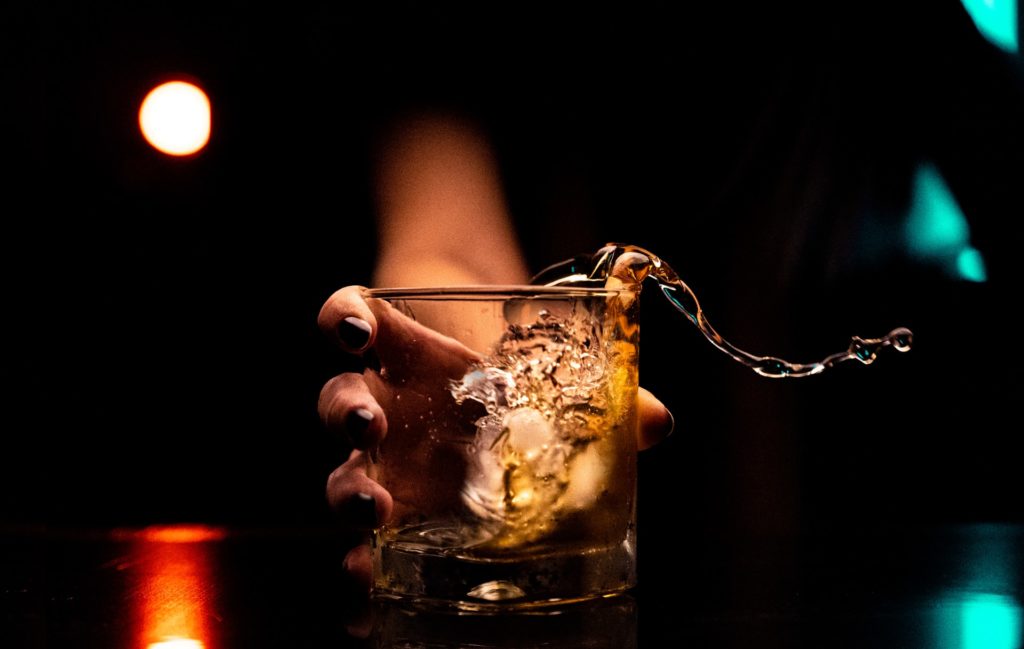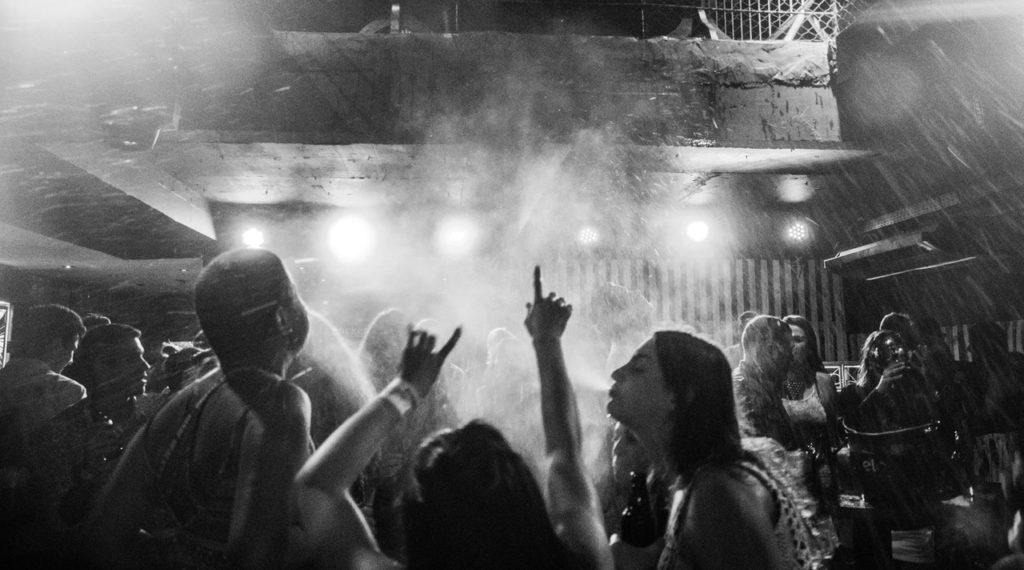Everyone loves to party. It’s a time when we can unwind, have fun, and socialize with others.
While taking a step back to enjoy life a little more isn’t necessarily a bad thing, the real issue is when it becomes addicting. Partying is a phase that many young adults go through that as they are leaving high school going onto college
There are many aspects to why it can be so addicting.
Many use it to let loose, get intoxicated, and “vibe” out to music. Others solely go to try and hook up. Some even go to network and meet new people.
Whatever the reason is, there should be a balance of how many parties a typical 21-year-old should be going to.
The Issue with parties
The issue with partying so much at that age is that it can take your focus away from the important things in life like work or school.
This type of behavior can lead someone on a downward spiral and as a parent, that is the last thing you want for your child.
With that being said, trying to understand how to convince your 21-year-old son to stop partying can be a challenge but with the proper strategy, it can happen.
As it is mentioned, having a great time at a party isn’t a bad thing, the issue comes in when you understand that the parties most people at that age are going to most likely have drugs and alcohol available for the party-goers to consume.
Anyone that goes to these parties is more than likely to consume either one of those things. As a parent, the last thing you want your children to do on a Friday night is get drunk or high.
Did you know that 63.1% of 21 to 25-year-olds drink regularly? Did you also know that 38.5% of this group are also considered binge drinkers and 11.1% are considered heavy drinkers? This constitutes the greatest amount of alcohol use for all age groups.
If your 21-year-old is going to these types of parties, he is most likely influenced by what is around and is consuming what’s there.
A person consuming these types of substances constantly is not only damaging their physical body, but also their mental health.
To crave that much stimulation from the party vibe and always seeking a “head change” by consuming drugs or drinking is a scary factor that needs to be changed ASAP.
Since it was addressed that the problem with partying is the consumption of alcohol or drugs, it is best to focus on these issues specifically to better deal with the situation.
Trying to convince your 21-year-old son to stop parting can be hard but it’s a must. You will be able to achieve this goal if you implement the proper steps and guidance for your son.
Have A Calm And Open Conversation
First, it is important to remember that while your son will always be your “baby”, they are legally an adult. This will most likely be the initial argument he will use when this topic is addressed. Therefore, talk to him about your genuine concerns and try to avoid criticism or judgment.
Second, never address the issue if he is intoxicated. Not only will he likely not remember the conversation the next day, but there is also a chance that he will become argumentative. Instead, wait until he is sober, has had a solid meal, and can converse with a level head.
Third, determine how much he is actually drinking.
While it may seem like he drank a 12-pack of beer by himself, if his body is not accustomed to consuming alcohol, his tolerance is likely quite low. He may not realize the impact that this is having on his behaviors.
When addressing the elephant in the room, note your concerns and be specific with your details.
Whether you think the activity is right or wrong is irrelevant. Scolding him is not going to convince him to stop.
The focus needs to be on his safety, the safety of others, and the impact this habit will have on his future. If these activities are impacting his grades or his work, it’s key to bring this up sooner rather than later.
It is also necessary to present a rational argument for cutting back on these crazy nights, not an emotional one.
Remind Him Of The Effects Of Alcohol
The Only Remedy Is Time
According to the American Addiction Centers, “depending on the body system and test used, alcohol detection times may vary. Alcohol detection tests can measure alcohol in the blood for up to 6 hours, on the breath for 12 to 24 hours, urine for 12 to 24 hours (72 or more hours with more advanced detection methods), saliva for 12 to 24 hours, and hair for up to 90 days.”
It is important that he understands that things like food, coffee, or a cold shower will not eliminate the alcohol from his system. Many people are under the impression that these so-called “remedies” are an easy fix.
In reality, while food will slow the absorption, this will just cause the effects to just be felt later in the evening.
In contrast, coffee and a cold shower will shock his system into feeling alert, giving the illusion of feeling that he is not as intoxicated.
These are important distinctions because if he is under the impression that he is not inebriated, he will likely drink more and get himself into a dangerous situation.
The Centers For Disease Control notes that “An average of 6 people die of alcohol poisoning each day in the US [and] about 76% of those who die from alcohol poisoning are men.” While the immediate response is “it won’t happen to me”, it only takes one drink too many to tip the scales.

Conduct An Experiment
If you are up to the task, one easy way to demonstrate the effects is to have a beer with your son.
Once you have finished the beer, take a home breathalyzer test. Then, test again at 30 to 45 minutes later. This is the average time it takes for the alcohol to metabolize and peak in a person’s system.
Additionally, one drink will take his blood alcohol content to approximately 0.02%. This means that with a maximum of four drinks, he will reach the legal limit to drive. However, if he is drinking back to back, the effects won’t be felt immediately, which is where the problem lies. While it seems simple enough to just explain it, seeing this impact first hand can make a bigger difference.
IMPORTANT NOTE: As mentioned, there are factors that can slow the timing of this peak. However, there are also factors that can expedite it. This can include not eating before drinking as well as engaging in activities, like taking shots, where there is a high amount of alcohol being consumed in a short period of time.
Create Guidelines For Those Living At Home Or Receiving Support
When trying to convince your 21-year-old son to stop partying, take into account where he is living.
If your son lives with you or is being supported by you monetarily, it is completely in your right to set limits for these types of activities.
Talk about the fact that it is important to unwind and find ways to destress, but while he is living in your house, he cannot be coming home drunk. Moreover, getting high on drugs should be prohibited.
There should also be time constraints when living in another person’s home. Set a reasonable time frame for his return.
Explain that this is in place so he does not destroy his life by wasting his time going to parties and consuming these things. Such things will cause a disruption in life.
Remember that there is a chance that he will not want to accept these rules. if that is the case, let him know that he has the option to move out if he can’t comply with the rules set.
If he does not live at home, but you are paying his rent or tuition, let him know that these activities are impacting his future and you cannot condone these types of behaviors. If he does not want to stop partying, then he will have to find the means to support himself.
It is imperative that you be firm with this ruling.
If you wiggle on the rules, he will not respect the structure that you are trying to put in place and he will revert back to old habits.
As you know, parenting is not an easy task and dealing with this situation was going to come eventually.
If your son does not live with you
Unfortunately, if your son is paying his own way and living independently, the only course of action you can take is to be honest about your feelings and hope that he will take a step back and realize the impact partying is having on his life. Remember to let him know your concerns and keep persuing him to cut down.
Finally, when he comes to visit, make an effort to remove alcohol from your home.
By not engaging in this activity and practicing what you preach, he is more likely to take your sentiments to heart and potentially change his ways.
Be Prepared For Pushback
Your 21-year-old son is an independent and confident young man. Depending on his personality and focus, he may take you up on your threat and decide to leave.
If he makes this decision, remind him that you love him and will always be there if he decides to change his habits.
If he knows he has a safe place to land and realizes his mistake, he is more likely to come to his senses rather than continuously spiral out of control.
Additionally, also let him know that no matter what decision he makes, if he finds himself without a ride, you are always a phone call away. His safety should always be your main concern.
Talk To A Professional
When the drinking seems to be getting to a point of no return or you discover drug use, it may be time to consider a bigger intervention.
First, talk to a doctor about his options, then give him the choice to stop on his own or think about putting him in therapy or rehab.
These solutions can help him determine the triggers that drive him to engage in these types of activities and give him the tools to cope without getting drunk or high.
Related: My son is dating an alcoholic

Final Thoughts – How to convince my 21-year-old son to stop partying
Trying to convince your 21-year-old son to stop partying can be a pain to deal with but it has to be done if you are starting to notice a trend.
Being involved in these types of outings can lead to issues down the line and stopping that habit as soon as possible is the most important thing to do.
If he has younger siblings, this is an even more urgent matter to handle because this might also influence them and make them think it is okay for this type of behavior to happen.
Taking the steps necessary to insure your son stops this behavior needs to be on top of your priority list as a parent. Until then, keep pursuing a better change and help your child realize that there is more to life than just constant partying.
